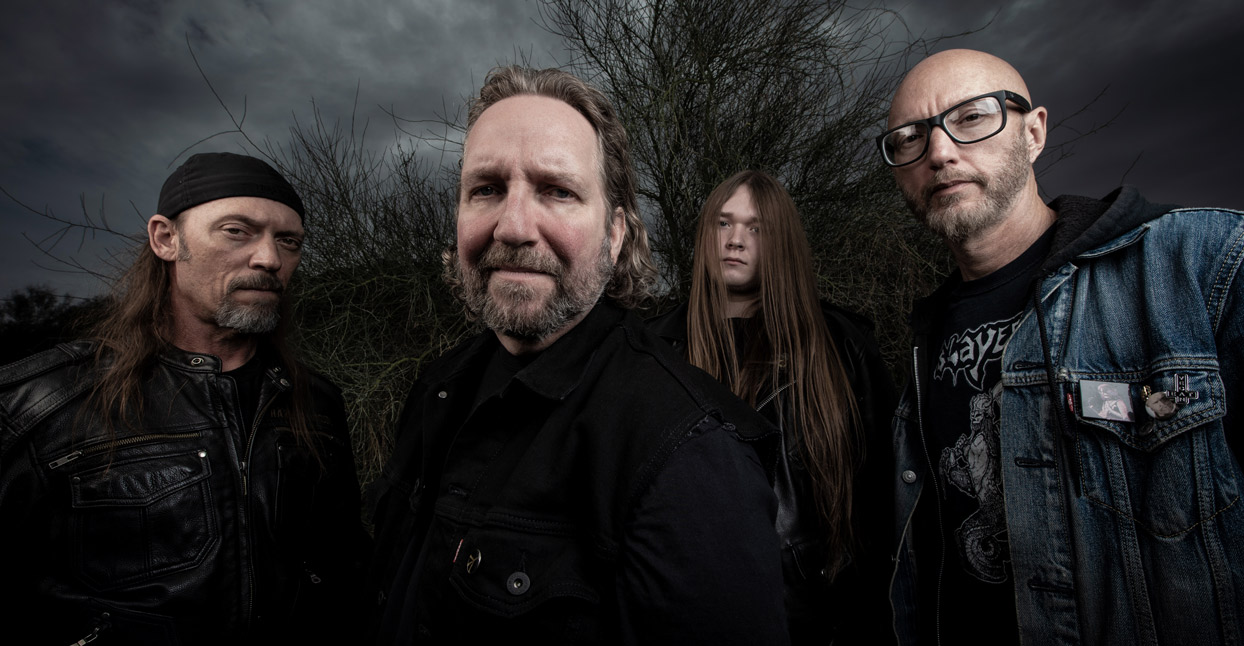

As the thrash metal movement got off the ground in the early- to mid-‘80s, the genre would come to be defined by themes like warfare, death, and the systemic failures of politics. Looking back on album covers and lyric sheets from that era, we see a time capsule of the prevailing anxieties of the day: nuclear annihilation and a growing sense of government as a malevolent force. In this time of uncertainty and dread, thrash wasn’t just a style of music, but a form of sanctuary; a potent combination of aggression, empowerment, and comfort.



Vinyl LP

Sacred Reich’s classic body of work—spanning 1987’s debut full-length Ignorance, 1988’s EP Surf Nicaragua, and 1990’s sophomore full-length The American Way—delivered on all of the familiar thrash hallmarks, but with an overriding sense of compassion that set them apart from their peers. This overarching sentiment is spelled out further in The American Way’s liner notes, which offers the following thesis: “We are more similar than different; we all want to love and be loved.” Accordingly, the band spend much of the record taking the fight to oppressive institutions—namely the U.S.-backed, right-wing regimes in Central America—on songs like “Death Squad” (from Ignorance), as well as the title track on “Surf Nicaragua.” (That Sacred Reich’s work represented a metallic permutation of flower-power idealism might come as surprising to some, given the controversial name. To wit, bassist/frontman Phil Rind, who is of Jewish descent, and is related to a survivor of the Dachau concentration camp, initially balked at first too.)
By 1996, however, Sacred Reich’s momentum had stalled, both internally and externally, and the band quietly bowed out as the musical landscape continued to shift away from the speedy brand of metal that even the band itself had largely renounced by that point. Fast forward to 2007, and the classic lineup reunited for what Rind calls “the weekend version of Sacred Reich.” For 10 years, Rind and his bandmates played sporadic festival dates, remaining adamant that no new material was ever coming.
“When we were an active band making records,” Rind says over the phone, “songs used to just pop in your head.”
The music just wasn’t coming together, try as the band might. But then, one day in 2017, Sacred Reich had a collective moment of clarity.
Rind was still mystified by how quickly things came together from there, despite the departure of classic-era drummer Greg Hall shortly thereafter, followed by rhythm guitarist and band founder Jason Rainey’s exit on the first day of recording due to health issues. Stepping in to fill their shoes, respectively, were drummer Dave McClain, who had replaced Hall once already back in 1991, and Joey Radziwill, a 22-year-old guitar wunderkind who’d grown up surrounded by his parents’ Sacred Reich posters. McClain, who stayed active as Machine Head’s drummer over the past 23 years, confessed to Rind that he had always hoped he could play in Sacred Reich again.
“I spoke to Dave the day that Greg wasn’t in the band anymore,” says Rind, “and when he said that it fuckin’ almost made me cry. I mean, he was in a really successful band! And they had about a year, year-and-a-half ahead of them. So at that point, we were like, ‘Well, we’ve waited this long. What’s the hurry?’ But as things progressed with them, I think it became apparent to him that he didn’t want to be in Machine Head anymore.”
Aside from the obvious pressures—not to mention the looming specter of the band’s legacy—the recording process flowed so smoothly that Rind sounds genuinely shocked. “This was the least rehearsed we’d ever been,” he says, “but there just seemed to be a different vibe this time.”

Vinyl LP

Awakening, the band’s new album, does indeed sound charged by the infusion of new (and new/old) blood. Longtime fans might be struck by how vital full-on thrash bangers like “Divide & Conquer” and “Manifest Reality” come across when the band kicks into high gear. Like many of their peers, though, over their initial run, Sacred Reich progressively slowed-down from pure, unbridled thrash to more of a groove-metal approach. The new album contains a healthy balance, with some classic rock-style hooks thrown in for good measure on tunes like “Death Valley” and “Something to Believe.”
“The songs on Ignorance were written when we were 16-17,” Rind explains. “So there was a lot of water under the bridge even by the time we did The American Way. Trying to be the heaviest band around and playing fast for its own sake just wasn’t interesting to us.”
That said, the riffs retain a surprisingly solid connection to the band’s past. The biggest distinction isn’t so much in the music itself, but in Rind’s perspective.
“On our new song, ‘Manifest Reality,’” he says, “there’s a line that says ‘When I was young, I had to change the world’—I had to, I felt like I didn’t even have a choice—and then it says ‘now I know I can only change myself.’ We can barely control ourselves, so maybe it’s best to look at how we [ourselves] act. Maybe that’s the real key. The most important thing that we can ever really change is our own heart.”







